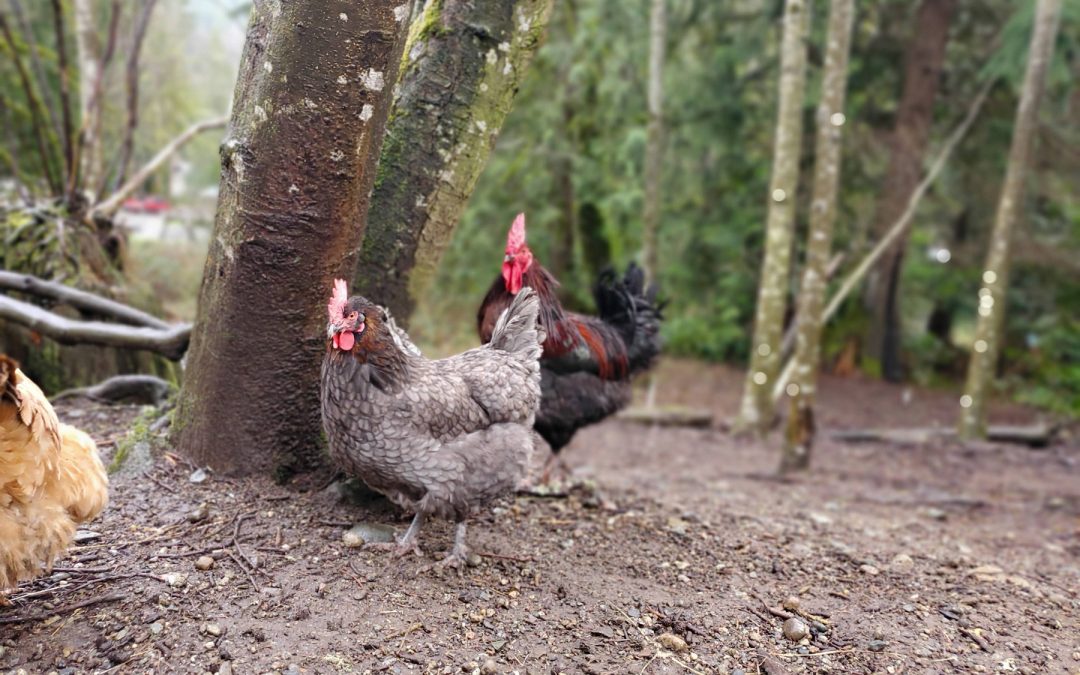Regardless of where you reside, suburbs, on the outskirts of town, or in the country, a flock can be allowed to free-range. Yep, you read that right!
People raise poultry for many reasons. Some seek to raise pets which provide fresh eggs, whereas, others raise poultry for sustainable purposes. Regardless of why you’re raising chickens, ducks, geese, or turkeys we want the best for the birds in our care. This is what separates us from factory farms.
Traditional Homesteading and Free Ranging
We understand that predators, from land and air, are a concern and issue. We live this everyday here in the mountains. As a sustainable property, we must plan accordingly for losses which are bound to occur throughout the year. Does this make us bad people? Absolutely not. This is simply the choice we’ve made for our homestead.
Do not move forward with raising free-range chickens or other poultry if you are not comfortable with the decision to potentially lose livestock. Only you can make that decision for your property, and not a person will look down on you for it.
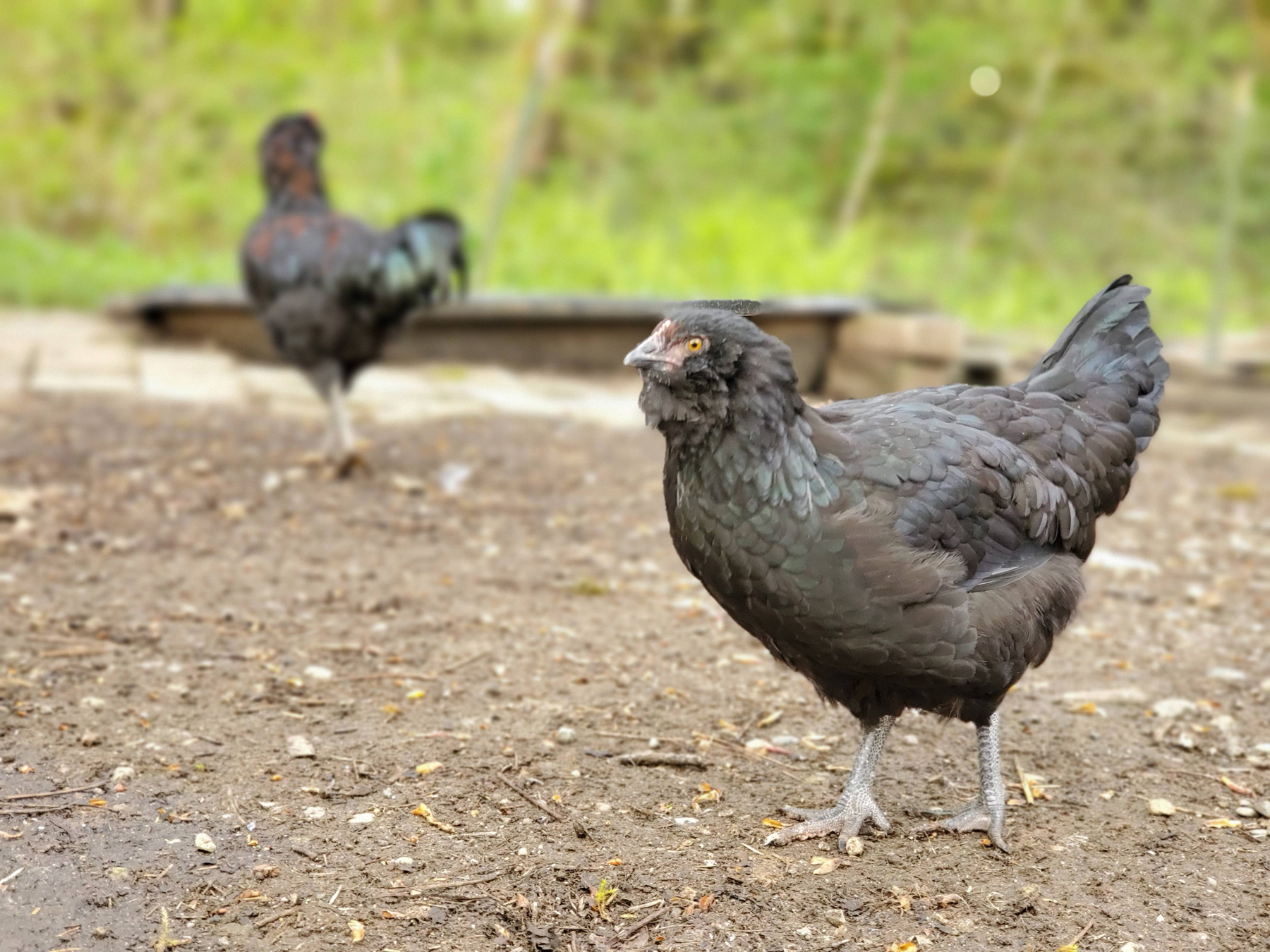
Raising Free-range Poultry
One cannot underestimate the benefits in raising free-range poultry. Livestock is not meant to be locked up or confined for long periods of time. What I am referring to is factory farming.
Whether you’re a seasoned poultry keeper or new to keeping poultry, the conversation to free-range, or not, is a topic which comes up quite often. In truth, there are both, pros and cons, to allowing your birds to roam the property.
Allowing your flocks to free-range is not a romantic notion. However, it is nice to look upon the flock freely grazing in the yard. Homesteaders who allow our birds to free-range as our forefathers did understand the importance of it. Risks and all.
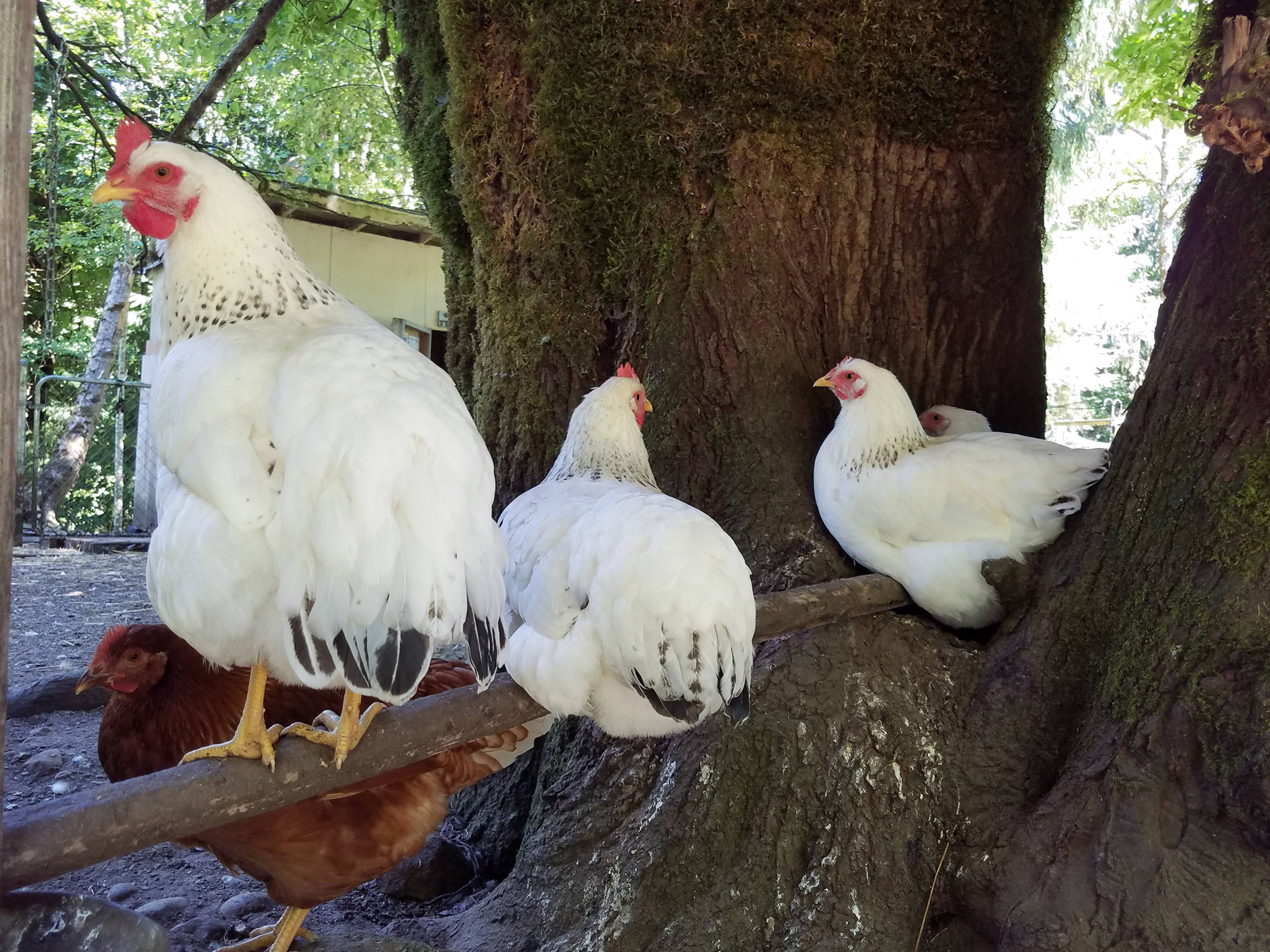
The Benefits of Free-Range Poultry
For those who need convincing, the benefits of free-range poultry are too great to ignore, allow me to explain why.
Healthier Poultry
Poultry which are allowed to free-range are more active birds. Their desire to explore to find the best grub, worm, or bug has them moving continually. This in turn reduces the chance of poultry becoming overweight. Keep in mind, overweight hens have a reduction in egg production.
Illnesses such as coccidiosis, worm overload, and respiratory conditions are minimized due to not being restricted to an enclosed space for an extended period of time.
Better Tasting Eggs and Meat
The benefit of free-range poultry means eggs and meat are more flavorful than ones kept in an enclosed space. Birds which are allowed to consume a more natural diet, away from commercial feed, produce a better tasting end product. The ability to forage for bugs, greens, herbs, seeds, and grains contribute to this.
Consumes bugs, pests, and small rodents
Poultry are omnivores, consuming greens, as well as a protein such as meat. Hence why they enjoy consuming worms, bugs, and little rodents. Rodents such as mice and small rats.
Placing poultry such as chickens, ducks, and guinea will help to reduce the amount of pesky bugs in the area. For example, guinea fowl enjoy consuming ticks. The birds (depending on the size of the infestation) can reduce the tick load in a field by 90% in a few short weeks. Ducks love to consume flies, whereas, chickens enjoy bugs such as grasshoppers.
Field mice do not stand a chance among chickens, turkeys, and guineas.
Minimize Commercial Feed
With the ability to consume a much more natural diet as they are free-ranging, the need to consume commercial feed decreases. Saving you a few hundred dollars over the course of a year.
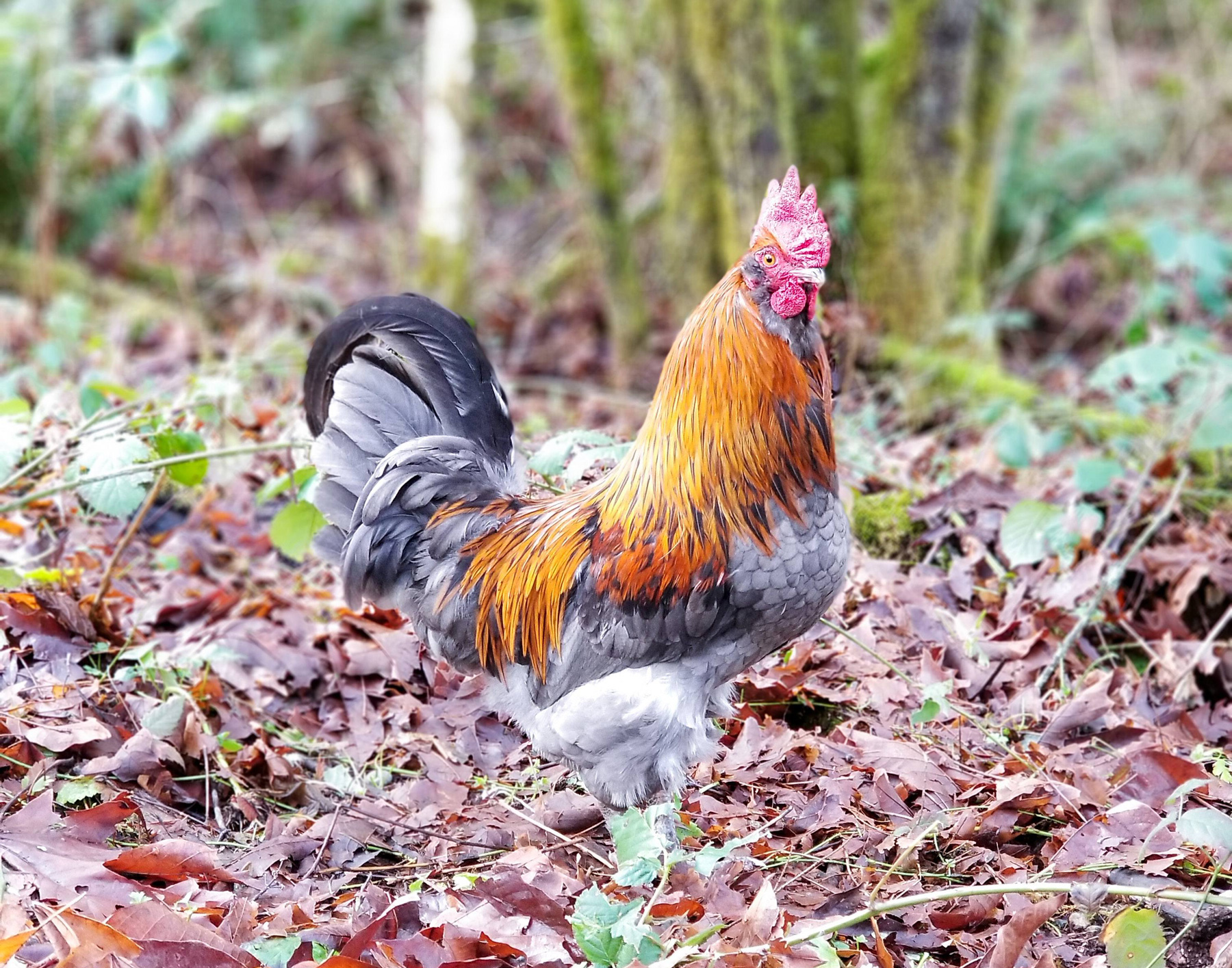
How to Free-Range Poultry
Individuals who homestead tend to allow poultry, excluding turkeys, to free-range the property freely without confinements. However, there are methods which can be put into effect to guard your birds as they are out and about. The benefits of free-range poultry is made easily with these tips on how to free-range poultry safely.
Before we get into the next segment it is important to understand why it is difficult to free-range turkeys. Heritage turkeys to be exact. Learn more about raising turkeys prior to adding them onto the homestead. This particular type of poultry is best managed in a large enclosure.
Fencing
The type of fencing used will depend on where you reside. Suburban poultry keepers generally have 8 foot fences separating the properties. This is ideal for keeping unwanted dogs out and heavier chickens and ducks in. However, learning how to clip the flight feathers of birds increases the chance they will remain within your fenced area.
Electric Fencing is the more practical item for those with acreage. Poultry fencing is a great option for keeping out coyotes and foxes as the birds are on pasture. However, hot wire is best for those who have larger prey issues such as coyote, wolves, and bears.
Livestock Guardian
In addition to fencing a livestock guardian is a great option for protecting a flock. And luckily, there are many options available to assist in keeping an eye on free-ranging poultry.
Ideally, livestock guardian dogs are the first option. Prior to adding a LGD, make sure you do your research. These breeds are the most abandoned due to the owner being uninformed about the breed.
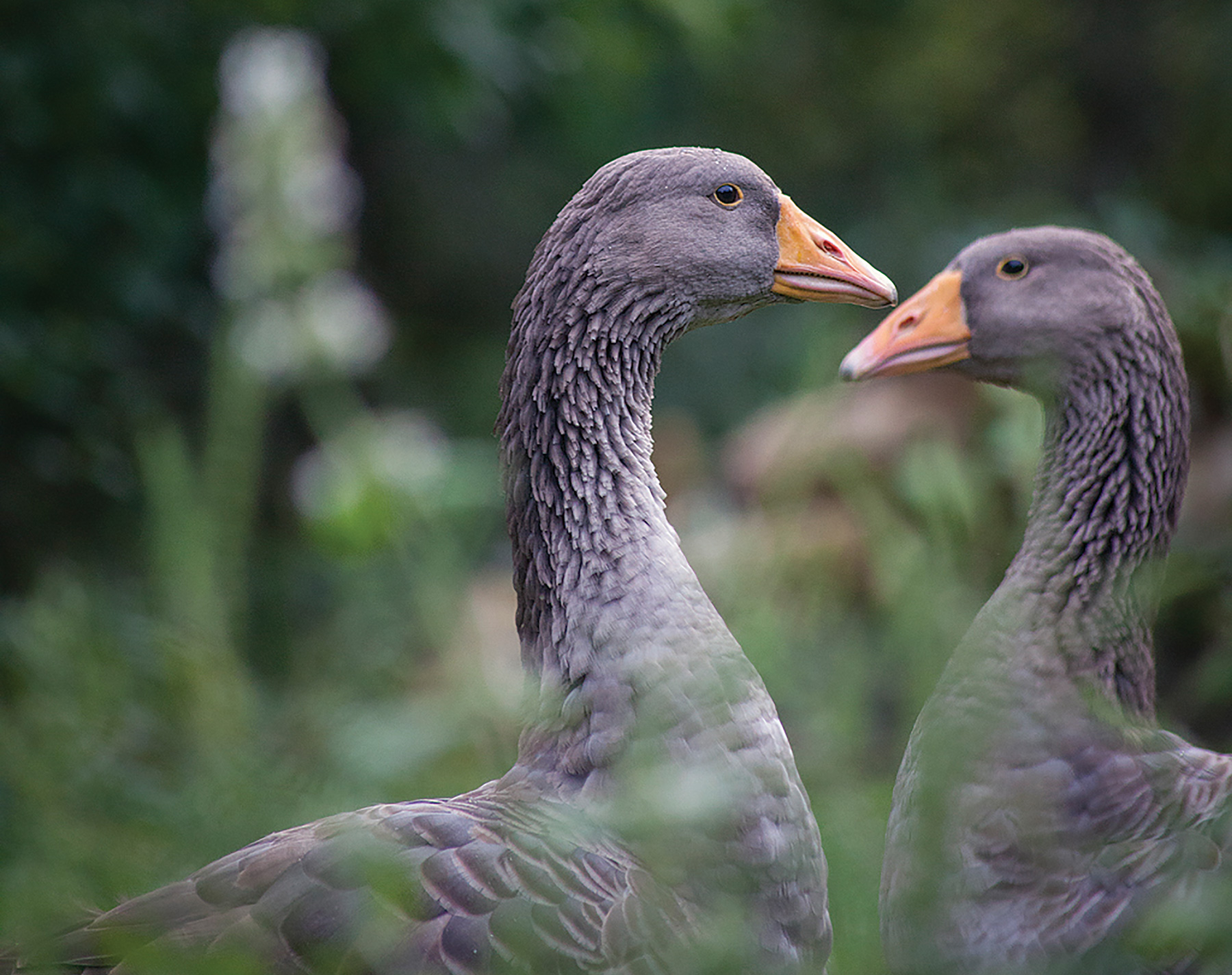
Geese are quickly becoming popular as flock guardians. Ironically enough, geese have been recorded as guardians of people and domesticated poultry since the Roman times. Their good eyesight and strong intuition to be watchful and alert have saved the lives of many birds from avian and ground attacks. White and brown Chinese geese are popular guardians. However, all geese breeds have the natural desire to protect. Choose the breed based on your property size.
The amazing guinea fowl serves multiple purposes, and one of the more popular is the title of nature’s alarm system. Guineas have multiple calls, however, it is the screeching alarm which poultry, dogs, and poultry keepers learn quickly. This call announces there is something in the area which they deem unsafe. But let me warn you, sometimes the unsafe predator is the UPS delivery truck. Guinea fowl are not the best choice for those who reside in the suburbs.
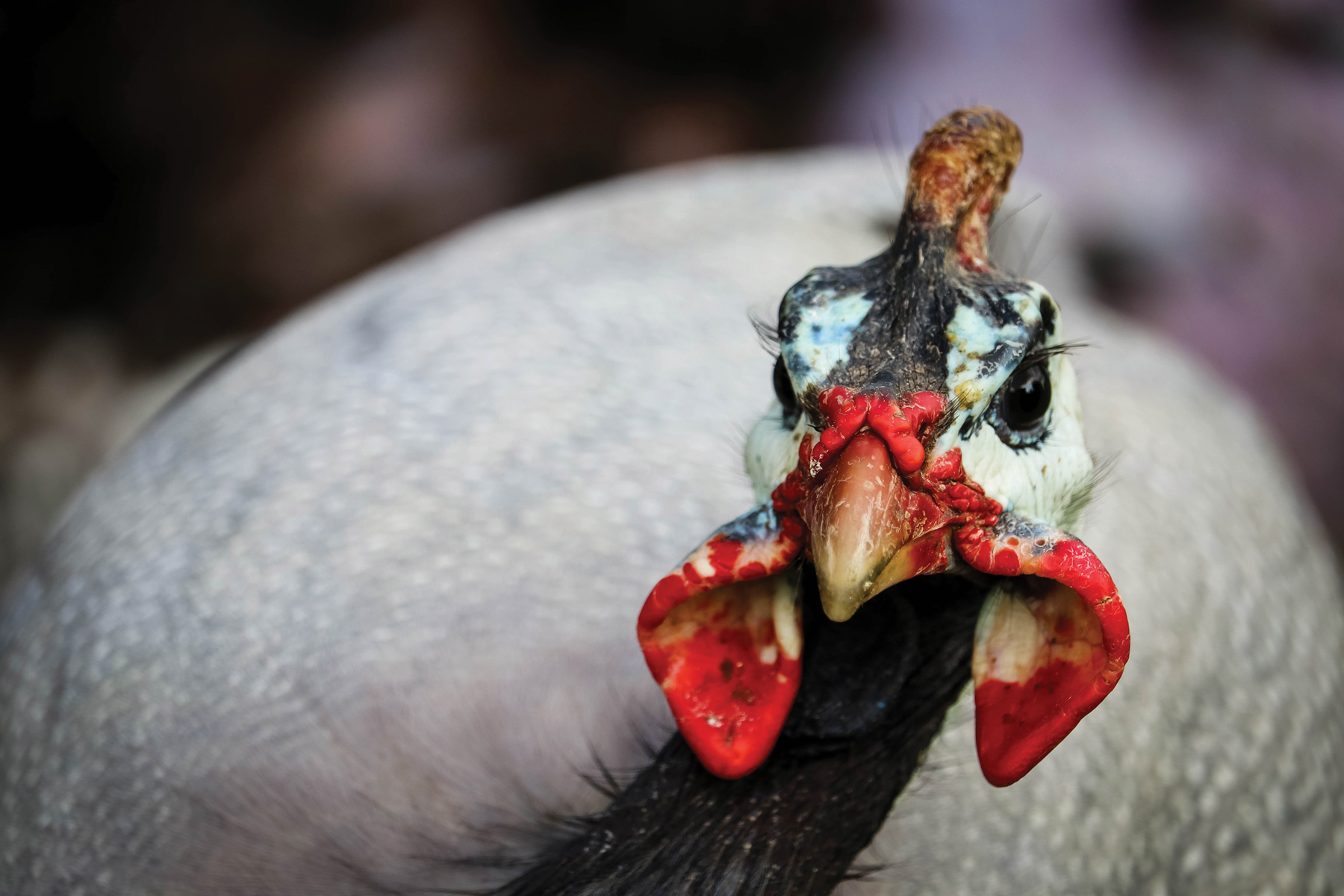
The Benefits of Free-Range Poultry
When given the chance, whether it is all day or a few hours a day, the benefits of free-range poultry is great. This is what separates homesteaders and backyard poultry keepers from factory farms. The desire to be good stewards to our livestock drives us to do what’s best for them.

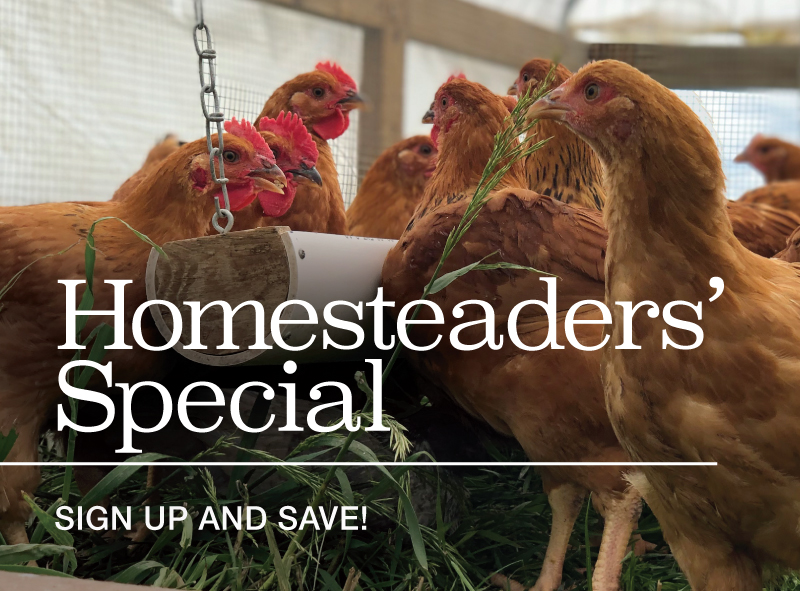
NEW Homesteader’s Special Available in 2020 from McMurray Hatchery
McMurray Hatchery is proud to partner with Homesteaders across the country, and support more sustainable lifestyles, by offering our new
Homesteaders’ Special. Our Homesteaders’ Special makes it easier to raise your own flock for meat and eggs:
- Register as a Homesteader by calling (800) 456-3280
- Purchase a minimum of 350 birds per year
- Choose your savings: 20% OFF OR 60-DAY TERMS!
Photos courtesy of Ann Accetta-Scott, Katherine Hondrogen and Sam Lamont.

